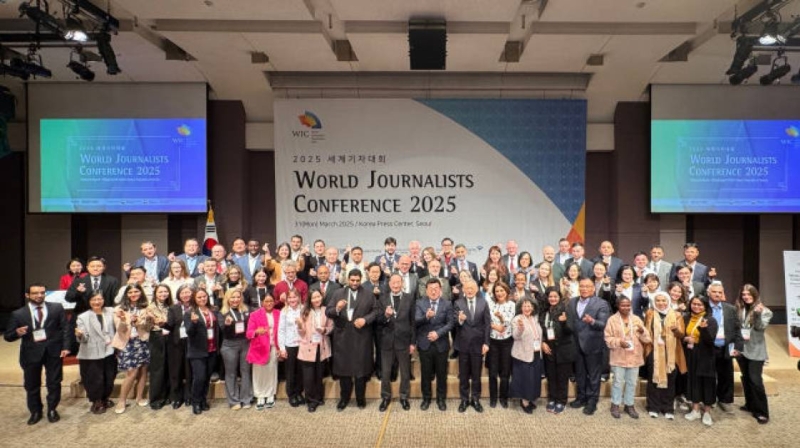Political consultations Room for amicable settlement
Political consultations Room for amicable settlement
Published: 12:00 am Apr 25, 2004
Aditya Man Shrestha
The five-party movement against the so-called regression has definitely made a mark with its tenacity to continue for weeks together. It is indeed an impressive show of strength to make its presence felt. However, it is far from garnering massive popular support reminiscent of the 1990 movement for the restoration of democracy. The size of the crowd might not be too heavy to overthrow the government overnight. But no government can remain unshaken by the constant disruption of public peace and order in the capital, which sees no signs of fizzling out easily.
The political parties are fully justified in launching public agitation after getting totally marginalised in the political development of the country since the royal takeover of October 4, 2002. There is however no cohesive message coming out from the demonstrations. That is a matter of little confusion to the people in general and equally a matter of concern to the political parties themselves.
The slogans raised during the agitation are loudly anti-king and pro-republic. But the demands advocated by the leaders of the agitation are something different. The political parties are orchestrating, according to their oft-repeated stand, the formation of all-party government, restoration of parliament, reinstatement of the Sher Bahadur Deuba government and so forth. The bottom line of the political leaders is at least clear that they want a share in power in the name of return of sovereignty from the King to the people. The republican slogan, although described by Nepali Congress President Girija Prasad Koirala as academic to the BBC broadcast, is equally loud and clear as far as the students and the young political workers are concerned. It might be a matter of embarrassment for the leadership especially in dealing with the Royal Palace. But it has come out as a craze and commitment on the part of the young participants who are visibly dominating the demonstrations. The current agitation is sure, over a period of time, to sort out the grievances of the political leadership but is difficult to address the radical slogans of the students and the youth.
The royal response to the peaceful agitation is as unclear as the messages stemming from the agitation itself. The King has called for the national election in order to hand over the executive powers of the State to the elected representatives of the people. Firstly, it is not clear if he meant to hold it within the Nepali year of 2061or just to initiate the groundwork for the parliamentary elections.
Secondly, the holding of the general election in itself is not a satisfactory solution to his own desire of playing a constructive role in a new political dispensation. He is on record that he wants to be heard by the people, not only seen — a role that is not consistent with the present Constitution of Nepal. A general election can help form a new elected government but does not fulfill the royal desire to play a new role given the continuance of this Constitution. Thus, election or no election, the pronounced issue of a new role to the King remains unresolved until the present Constitution is amended.
Thirdly, the proposed consultation with the political leaders did not augur well with the boycott of the talks by the five agitating parties. With the presentation of new conditionalities laid down by the leaders the proposed dialogue got aborted even before it started. It is not clear if the proposed consultations between the King and the political leaders are going to focus on the formation of a new government under a prime minister chosen by him or recommended by the five political parties, or on the new role of monarchy in consonance with the royal desire. The proposed talks might have to deal with the third dimension related to the new demands of the political parties before they enter into matters of substance.
Amid the current political imbroglio, it is not surprising to find the Maoist leader Dr. Baburam Bhattarai offering to make a concerted effort to oust monarchy. The anti-king slogans during the peaceful agitation have naturally developed a responsive chord with the main agenda of the Maoist insurgency. A unity between two political forces is bound to act drastically against the third force, be it monarchy or something else. In that sense, it is unwise to antagonise the political parties to the extent of pushing them into the Maoist fold. It is equally hard for the political leaders to maintain a balance between the radical and moderate forces within their own cadre. The Maoists, despite their recent overture to the political parties, appear no less contradictory. On the one hand, they are insisting on the establishment of republicanism. However, they have expressed their readiness to accept monarchy if a constituent assembly endorses it. That leaves room for the acceptance and continuance of the institution of monarchy under a new dispensation agreed upon by mutual three-pronged negotiations.
The contradictions seen in the perception and demand of the three political forces have
at least one positive aspect. They are thus amenable to flexibility despite their apparent rigidity in public utterances. That indeed leaves room for give and take and amicable settlement. The current political agitation should lead to serious negotiation and amicable settlement. Shrestha is coordinator, Volunteer Mediators Group for Peace and Conflict Resolution



